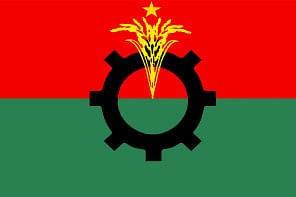Military looms large over Pakistan polls
Accusations of military interference, encroaching extremism and a series of deadly attacks have cast an alarming shadow over Pakistan's hopes for a rare democratic transition of power in next week's election.
Observers have slammed "blatant" attempts to manipulate the ballot, which will see the brother of a recently jailed three-time prime minister face off against a former World Cup-winning cricketer for leadership of the nuclear-armed nation, whose short history is peppered by coups and assassinations.
A series of deadly attacks in mid-July has further darkened the mood, denting optimism over hard-won security for the country of 207 million.
"Whatever its result, the July 25 election will only increase Pakistan's instability," says former Pakistan diplomat Husain Haqqani. "It will be an election without winners."
Nearly 106 million Pakistanis, including more than 19 million new voters, will choose a successor to the Pakistan Muslim League-Nawaz (PML-N), which took power in 2013 and hopes for a new mandate under leader Shahbaz Sharif.
Its biggest challenger is the Pakistan Tehreek-e-Insaf (PTI), led by former national cricket captain Imran Khan, seen in the West as a celebrity playboy but who turns a devout face towards Pakistan.
A third choice, the Pakistan Peoples Party (PPP) of Bilawal Bhutto Zardari -- son of slain premier Benazir Bhutto -- could become kingmakers, forming a coalition with the winner.
The brief, acrimonious campaign has been overshadowed by a tug-of-war between two actors who cannot even hold office: former premier Nawaz Sharif, ousted over corruption and banned from politics; and the military.
Sharif -- older brother of Shahbaz -- accuses the generals of targeting his party, including intimidating his candidates to switch allegiances, particularly in Punjab province.
Punjab holds the key to power under Pakistan's first-past-the-post system, with a potential 141 out of 342 seats in the National Assembly, 272 of which are directly elected.
The stand-off between Sharif and the military peaked earlier this month, when he was sentenced in absentia to 10 years in prison for corruption.
One week later, he returned to Pakistan from London, where his wife is receiving cancer treatment, and was promptly imprisoned. Analysts say the PML-N's fate rests on his ability to frame himself as the victim of a military conspiracy.
He is not alone in his accusations against the generals. Major Pakistani media outlets and activists have increasingly complained of kidnappings and intimidation in recent months.
The pressure, branded a "silent coup" by one think tank, seeks to censor coverage of certain topics and parties ahead of the election, they say.
The PML-N appears to be the main focus, though Bhutto has also complained his campaign is being hampered.
There is a widespread belief that the generals prefer a weak civilian government who will not seek to rebalance the power between it and the security establishment.
"The military is clearly trying to create a new generation of leadership," says security analyst Ayesha Siddiqa.
Khan is seen as the beneficiary of that favour, allowed to move freely around Pakistan and proclaim his ambition to build an "Islamic welfare state". His chances of running the country are considered the best they have ever been.
The military, which has ruled Pakistan for roughly half its history, denies the allegations and says it takes "no direct role" in the election. It is set to deploy more than 370,000 soldiers on polling day.
The independent Human Rights Commission of Pakistan has declared itself "gravely concerned over what it sees as blatant, aggressive and unabashed attempts to manipulate" the elections.
"While it is critical that the polls are held as scheduled, there are now ample grounds to doubt their legitimacy -- with alarming implications for Pakistan's transition to an effective democracy," it said this week.
Even if it escapes a slide back in to insecurity and authoritarianism, Pakistan faces pressing challenges.
One of the most acute is the economy, with analysts warning the next government has little time to avert a balance-of-payments crisis, likely requesting Pakistan's second IMF loan in five years.
It will also have to tackle one of the fastest population booms in Asia, negating economic and developmental gains, and particularly alarming when combined with the threat of absolute water scarcity as soon as 2025.
Security has improved dramatically since a military crackdown. But analysts have long warned of Pakistan's failure to address the root causes of extremism.
Militants still carry out spectacular attacks -- including a suicide blast last week that killed 149 people, the second most deadly attack in Pakistan's history.
In such a context, Khan in particular has raised eyebrows by increasingly catering to religious hardliners, spurring fears his leadership could embolden extremists.
Military interference in the ballot prevents people from voting out bad leaders who don't address the country's needs, says the diplomat Haqqani.
"The solution to Pakistan's problems is letting democracy run its course," he said.

 For all latest news, follow The Daily Star's Google News channel.
For all latest news, follow The Daily Star's Google News channel. 



Comments